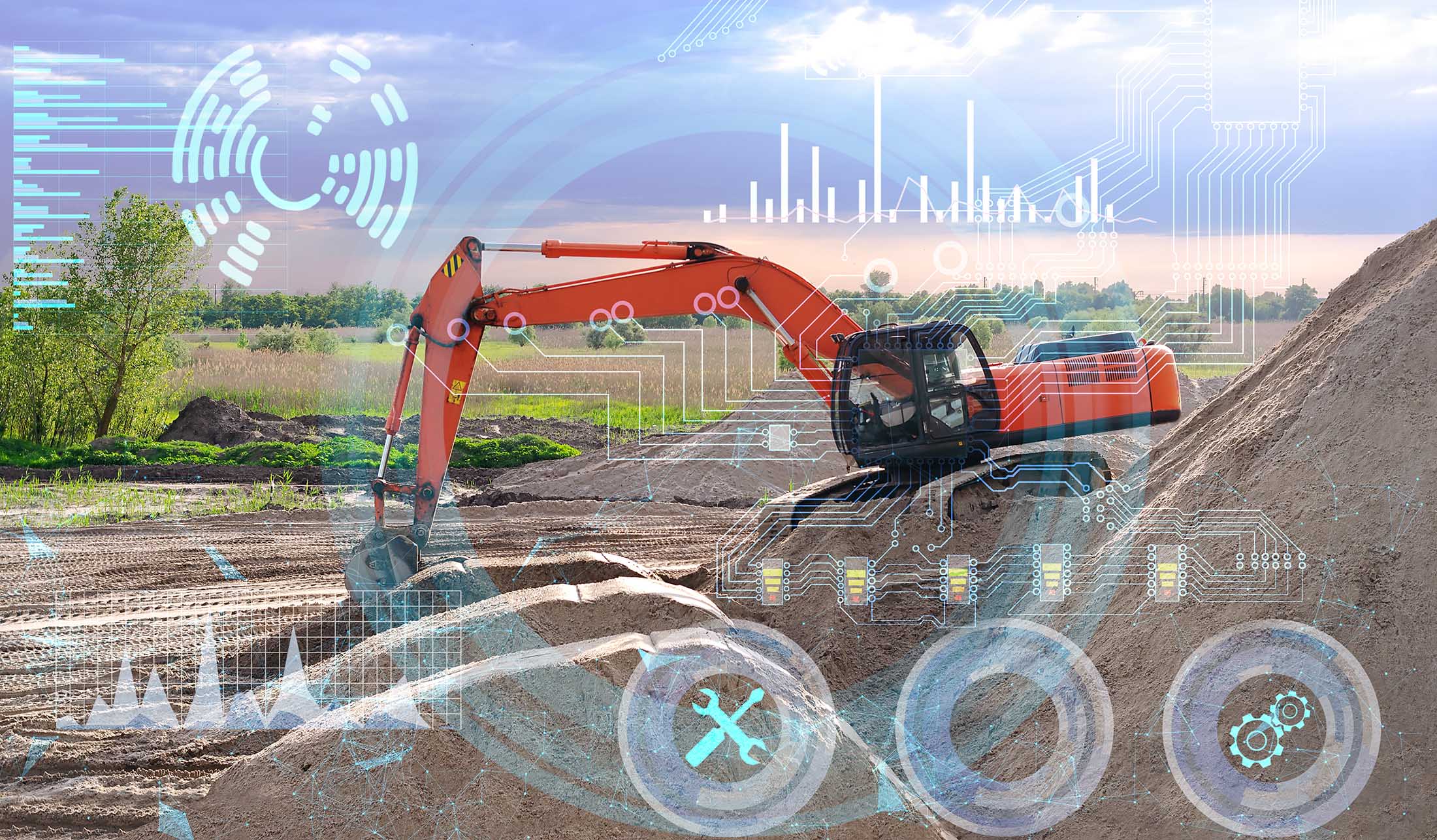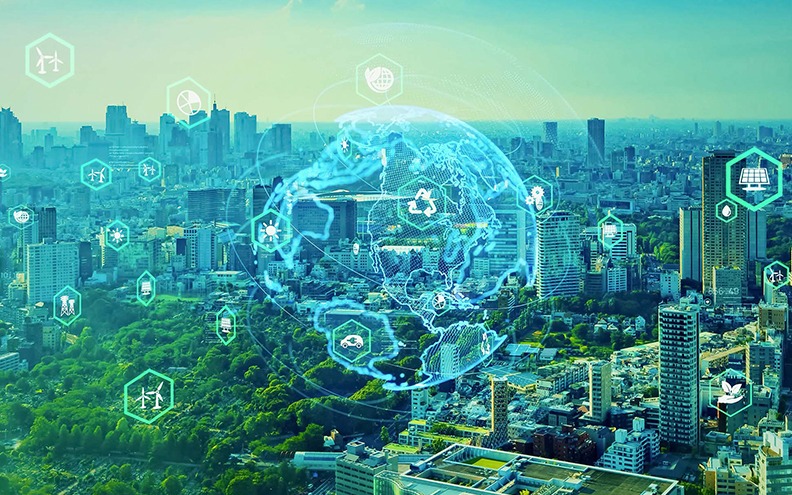Sustainable construction is not just a trend to be followed; it reflects how we respect the environment and the well-being of fellow creatures through conscious construction practices. As we discuss a mindful approach in the construction industry, let us first understand the importance, advantages, and strategies to achieve sustainability goals.
What is Sustainability in Construction?
Sustainability in construction is the strategy of building structures by using construction practices aimed at decreasing the negative impact on the environment. It emphasizes long-lasting infrastructure while keeping the environment safe for future generations by using eco-friendly and recycled construction materials, green technologies, and responsible disposal of waste.
Related: Waste Management Case Study
Why is Sustainable Construction Important?
In today’s green-conscious world, sustainability is not a term unheard of. While people across industries adopt eco-friendly practices, the construction industry also has a fair share to contribute for several reasons. By adopting environment-friendly measures, you adopt long-term profitability for your business while participating in the country’s financial development and the global fight against environmental troubles.
Benefits of Sustainable Construction
- Promotes well-being: Sustainable buildings improve indoor air quality, natural lighting, and green spaces in the building premises. With all these benefits, residents can easily achieve their health and lifestyle goals.
- Minimizes Waste: Sustainable practices prioritize responsible practices like using recycled materials, minimizing waste, and sourcing locally. This reduces the extraction of resources and the environmental burden associated with transportation.
- Encourages economic growth: As construction businesses prefer sustainability, the change creates more employment and business opportunities in industries related to renewable energy and green technologies.
- Leads to a Cost-Effective Future: Green initiatives are usually seen as an expensive deal in the initial stages of the project. However, lower energy and water bills, reduced maintenance, and increased durability lead to long-term cost savings, making sustainable construction a cost-effective affair.
- Facilitates Reduction in Carbon Footprint: Sustainability techniques result in the considerable reduction of greenhouse gases emitted due to conventional procedures. This is a remarkable change in the direction of fighting climatic changes caused due to construction practices.
Methods and Strategies for Sustainable Construction
To realize the benefits of sustainable construction practices, they must be implemented with the right strategies. Following are a few essential aspects of a comprehensive sustainable construction strategy.
- Using renewable materials
- Employing energy-efficient designs
- Implementing effective waste management
- Adopting green technologies
- Following sustainable procurement practices
- Adhering to environmental regulations
Role of Technology in Sustainable Construction

Technology helps in the easy adoption of sustainable construction practices. It provides the necessary tools and resources to simplify processes and achieve sustainability. One such technological tool is the Project Management Information System (PMIS).
Building a Greener Future: How PMIS technology helps Capital Project owners achieve advancing Sustainable Construction Goals
PMIS is a comprehensive tool that provides relevant data, indicators, and feedback to project managers and stakeholders, enabling them to improve the sustainability performance of their projects. Below is the list of benefits offered by PMIS in achieving sustainable construction:
Enables Resource Optimization
Real-time data insights offered by the PMIS simplify resource allocation and their utilization in the project, thus helping to reduce unnecessary wastage of valuable resources.
Offers Real-Time Monitoring
Constant monitoring features of PMIS help businesses adhere to sustainability specifications. PMIS offers real-time data and analytics on construction activities and helps identify any deviations. In case a deviation is found, the system sends timely prompts for corrective actions.
Ensures Document Management
Sustainable construction often involves adhering to specific standards, certifications, and regulations, including those imposed by federal agencies for environmental protection. To comply with these standards, it is important to keep track of permits, compliance documents, certifications, etc. PMIS enables effective document management by keeping these documents organized, accessible, and up-to-date.
Simplifies Budget Management
Sustainable construction initiatives require accurate cost estimations of a variety of eco-friendly materials. PMIS assists you with budgeting activities such as tracking expenses related to eco-friendly materials, choosing a cost-effective & energy-efficient technology, and other sustainability measures. As a result, it helps you align sustainability goals with your budgetary targets.
Mitigates Risk
Sustainability initiatives may pose unique challenges during the project lifecycle. PMIS provides an assessment of potential challenges such as resource scarcity, regulatory challenges, or environmental impacts at the early stages of the project lifecycle so that companies can take remedial measures proactively.
Integrates with Building Information Modelling (BIM)
PMIS integrated with BIM helps visualize various stages of the construction process. This aids in simulating the incorporation of sustainability practices in planning, designing, and optimizing building layouts. The resultant data helps in identifying areas for improvement in energy efficiency and reduces the environmental impact of the construction process.
Reforms Supply Chain Management
PMIS helps diligently track of the sustainability performance of suppliers and subcontractors that are part of the supply chain. It lets you make informed decisions, choose to source materials & services from providers responsibly, and follow sustainability norms.
Allows Post-Construction Analysis
PMIS provides valuable information even after the project’s completion. It offers a post-construction analysis that helps you assess the environmental impact and sustainability performance of the construction. This gives a better understanding of project performance from a sustainability viewpoint and also yields valuable feedback for improvement in future projects.
Promotes Energy Management
The PMIS dashboard tracks energy consumption throughout the various stages of construction. This provides valuable information on identifying activities with high energy needs. It also helps in identifying areas where energy can be saved, thereby giving strength to the sustainability approach.
Minimizes Waste Reduction
PMIS offers detailed insights into the entire construction process, including the identification of construction processes that generate more waste. This is valuable information for the teams to develop the right strategies for waste reduction and waste management.
Track Procurement
The PMIS dashboard carefully tracks material procurement and allows you to ensure the use of eco-friendly materials in construction as far as possible. It also includes monitoring of materials procured from different sources such as recycled materials, locally sourced alternatives, and more.
Helps Efficiently Schedule Projects
The PMIS dashboard efficiently schedules various project activities, providing vital details on resources and due dates of completion. This arrangement brings discipline to the system and keeps track of the progress. It especially prevents unnecessary delays in completion that could otherwise have environmental impacts.
Assists in Compliance with Environmental Regulations
Construction projects need to comply with the environmental regulations and standards set by federal agencies. PMIS ensures the construction project’s progress while adhering to compliance metrics. It keeps the project managers updated and alerts them in the event of a potential violation.
Supports Data-Driven Decision-Making
PMIS offers accurate data analytics on a range of construction parameters. The data serves as a reliable source during the selection of eco-friendly materials, techniques, and strategies. This empowers construction managers to make informed decisions that prioritize sustainability.
Offers Lifecycle Analysis
PMIS aids in analyzing a building’s health from production to the end-of-life stages. It generates valuable data on crucial sustainability aspects such as material durability, energy consumption, impact of demolition or deconstruction, and more.
Tracks Carbon Footprint
With PMIS implemented, you can track the carbon emissions caused by various construction activities. It helps identify stages or activities that need improvement in terms of mitigating emissions, eventually supporting the goal of achieving an eco-friendly construction process.
Enhances Communication and Collaboration
The PMIS dashboard functions as a central platform for collaboration and communication. Different stakeholders can share and access data and insights. As a result, the teams can collectively contribute to achieving sustainability goals.
Related Reads:
Four Lessons Learned from Years of PMIS Implementations
Transforming Construction Projects with PMIS Integration and Automation
PMIS Post Implementation to Increase Efficiency and Cost Savings
Why is PMIS more popular in the construction industry now?
How OnIndus Can Help Achieve Sustainability Goals
OnIndus provides a complete PMIS solution that simplifies the adoption of sustainability for you as a project owner. From optimized resource utilization to waste reduction and regulation compliance, with OnIndus, you can access a complete range of solutions enabling sustainable construction practices.
Conclusion
A balanced ecosystem is our shared responsibility as a society, and sustainable construction gives us a great opportunity to contribute towards this common goal. With the combined support of eco-friendly practices and technology, such as OnIndus’s comprehensive PMIS solution, you can create structures symbolic of durability and ecological conservation at the same time. Then why wait? Contact us now to take your first step towards a better and greener environment.
FAQs
Q: What is sustainability in construction?
Sustainability in construction means using materials and procedures that do not have a harmful impact on the environment. It also involves reusing and recycling waste, conscious disposal of waste, and adopting recycled materials to reduce the carbon footprint caused by construction activities.
Q: Why is sustainability important in construction?
Sustainable construction has several benefits, which include the protection of the environment from the harmful impacts of the industry, encouraging economic development, and promoting cost-efficiency in the long term.
Q: What are the benefits of sustainability in construction?
Sustainable construction has numerous environmental, economic, and social benefits. It reduces waste, conserves resources, and saves energy, leading to a healthier planet. Lower operational costs and increased building value attract tenants and buyers, boosting the economy. Moreover, it promotes worker well-being and creates job opportunities.

